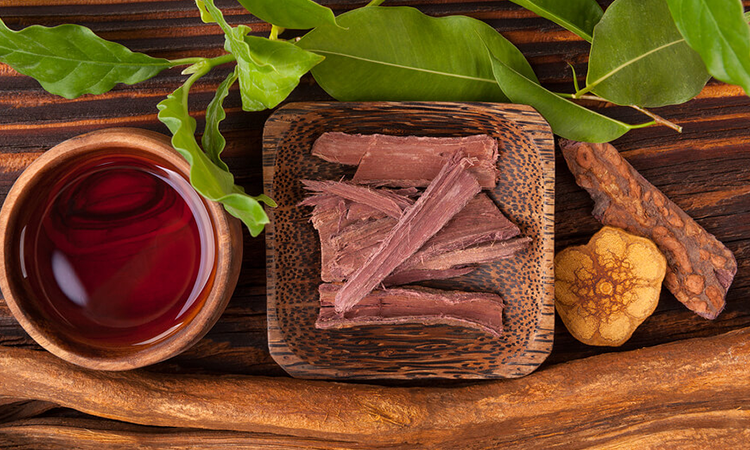
What is DMT? – DMT (N, N-Dimethyltryptamine) is a hallucinogenic drug that is known for its ability to invoke intense, often spiritual experiences in users. DMT can be ingested orally, smoked, snorted, or injected.
While DMT’s addictive potential is quite low when compared to say, heroin or cocaine, it can be abused and may be psychologically habit-forming.
DMT as a chemical tryptamine compound that naturally occurs in several types of plants. Tryptamine also produced in humans, playing a critical role in central nervous system regulation such as sleep, body temperature, memory, cognition, and behavior.
Effects include the following:
- Rushing sensation
- Euphoria
- Increased energy
- Increased libido
- Improved concentration
- A heightened sense of empathy
- Altered time perception
Adverse side effects may include:
- Anxiety
- Delirium
- Hyperthermia (profoundly increased body temperature)
- Hyperactive reflexes
- Muscle rigidness
- Nausea, vomiting, and diarrhea.
- Increased heart rate
- High blood pressure
- Increased body temperature
- Intense fear and panic
- Dilated pupils
- Lung irritation
- Serotonin Syndrome (a life-threatening condition caused by an excess of serotonin in the central nervous system)
How DMT Works
Researchers are still unclear as to the precise mechanism that causes DMT to impact the brain so dramatically. However, DMT is thought to increase serotonin, a chemical neurotransmitter responsible for feelings of well-being and relaxation.
Ultimately, the use of DMT appears to lead to increased activity in many different bodily processes, such as heart rate and cognition. Many posit that DMT is excreted by the pineal gland as a person nears death, and may account for much of the imagery experienced by persons who have had close encounters with death or have been clinically dead and been brought back to life.
What is DMT Traditional Use
Many forms of DMT have been found in use worldwide. In South America, for example, the ayahuasca vine and Anadenanthera peregrina (yopo) plant are used in tribal rituals and by a shaman to reach a higher level of consciousness. Ayahuasca is usually made into a tea-like brew from bark whereas yopo is typically smoked or snuffed (inhaled.)
DMT is also referred to as the following:
- Fantasia
- Businessman’s Special
- Businessman’s Trip
- Dimitri
- 45-minute Psychosis
- Ayahuasca (plant)
What is DMT Abuse?
DMT is not considered to be addictive, but some people an develop a psychological dependence on the the substance. Signs of abuse include the following:
- Consuming more of the drug than intended or for a longer duration
- Failure to cut down on drug use despite attempts to quit
- Spending a significant amount of time obtaining and using a drug and recovering from
- it’s effects
- Intense drug cravings
- Neglect of important responsibilities associated with work, school or home due to drug use
- Using drugs despite social and interpersonal difficulties related to use
- Abandoning recreational and occupational activities in favor of drug use
- Using a drug in dangerous situations such as driving or operating machinery.
- Continued use of a drug despite physical or psychological problems that manifest or are excerbated by its use
- Development of a drug tolerance (increasing amounts are needed to achieve the desired effect)
- Evidence of dependence, such as withdrawal symptoms upon cessation
Overdose
It is very difficult, if not impossible to overdose on DMT alone. Aside from possibly intravenous use, most methods require a user to continue consuming DMT long after the person would become too incapacitated to do so.
That said, DMT is potentially dangeorus when mixed with other psychoactives that act on serotonin levels in the brain. Too much can result in a condition called “serontonin syndrome”, which can be an absolutely terrifying experience and in some cases, fatal.
Options for Treatment of DMT Abuse
As noted, DMT “addiction” is uncommon. However, people who develop an abusive pattern of DMT should seek substance use treatment in our center through an inpatient or intensive outpatient program, or both.
Many people who abuse DMT also use other substances or may have co-occurring mental health conditions that need to be treated in conjunction to drug abuse.
Our inpatient center offers a residential facility where patients receive therapeutic services as needed around-the-clock for 30 days or longer. During a residential stay, patients participate in behahavior therapy, counseling, 12-step programs, and holistic activities such as yoga and meditation.
Outpatient programs do not require patients to stay at the facility, but rather, visit the center several times per weeks for individual and group therapy sessions. Instead, patients live at a private home or sober living environment while they continue treatment and gradually transition back to society.
After intensive addiction treatment has been completed, former patients can benefits from aftercare planning services and alumni activities that are structured to build team support and further the recovery process indefinitely.